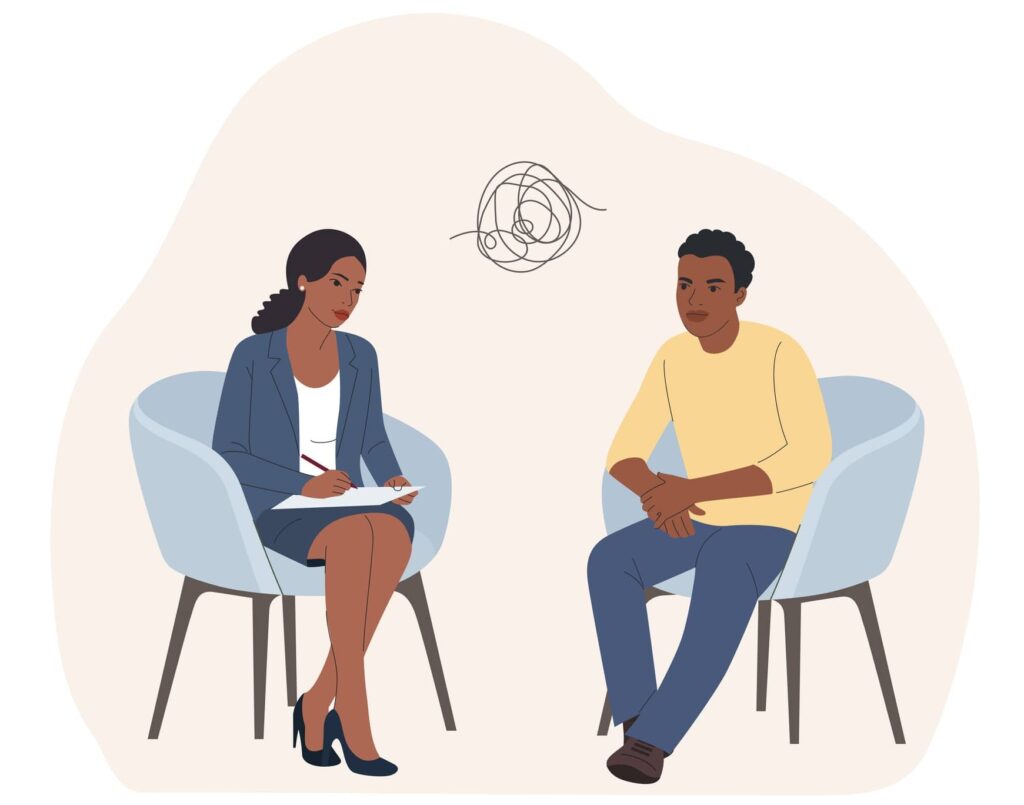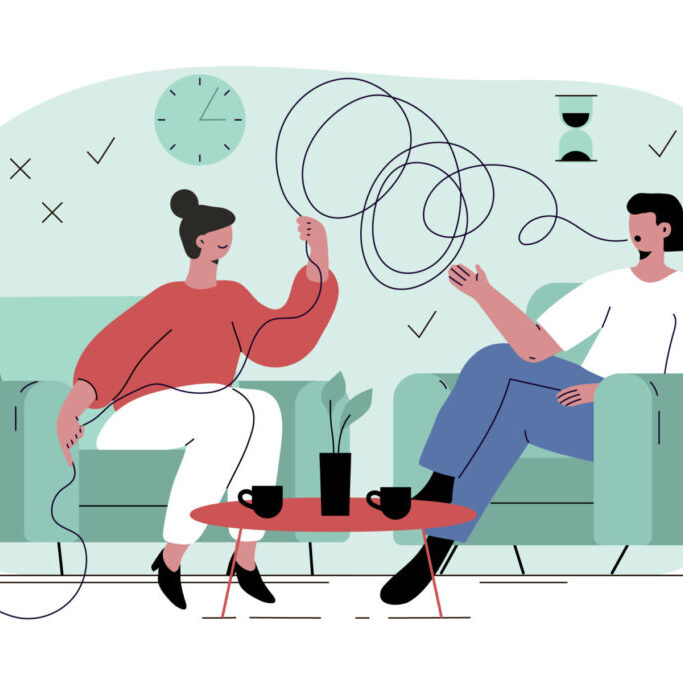Why Cultural Competency Matters in Anxiety Therapy: Chicago’s Multicultural Landscape

Picture this: Aaliyah, a first-generation Pakistani-American and a bisexual woman, finally decides to seek anxiety therapy in Chicago after years of struggling with social anxiety. Between balancing her conservative family’s expectations and finding acceptance in LGBTQ+ spaces, she constantly feels like she’s performing different versions of herself. When she shares this with her therapist, hoping for support, the therapist shrugs and says, “Maybe just focus on being authentic—your family will come around.”
Well, that’s not culturally competent therapy—that’s just ignorance.
A therapist with cultural competence wouldn’t dismiss Aaliyah’s reality with generic advice. They would recognize that “just being authentic” isn’t always safe or feasible, especially for someone navigating intersecting identities.
Multicultural therapy would validate Aaliyah’s lived experience, helping her develop strategies that honor both her identity and cultural background while managing social anxiety effectively.
Chicago is a vibrant, multicultural city, home to people from countless backgrounds, each with unique traditions, expectations, and challenges. When it comes to anxiety therapy in Chicago, these cultural factors cannot be ignored.
Therapy that fails to recognize how identity, family dynamics, and societal pressures shape social anxiety is therapy that misses the mark. Cultural competence in individual therapy ensures that treatment is relevant, effective, and affirming for people from all walks of life.
How Cultural Factors Shape Social Anxiety
Anxiety isn’t just a personal struggle—it’s influenced by cultural messages and expectations. If you’ve ever felt a deep sense of discomfort in social situations, there’s a chance that your background plays a role in shaping your experience. Here’s how:
- Pressure to Maintain Strength and Composure
Some cultures emphasize emotional resilience and self-reliance, making it difficult to acknowledge struggles with anxiety. If you’ve been raised in an environment that values silent endurance over emotional expression, seeking anxiety therapy in Chicago might feel like admitting defeat. Spoiler alert: That feeling can be addressed in therapy too! - Unspoken Family and Social Expectations
Many people grow up with unwritten cultural rules about how to behave. Maybe you were taught to always be agreeable, avoid confrontation, or put family needs ahead of your own.
These pressures can turn everyday social interactions into high-stakes performance, fueling anxiety in ways that traditional therapy often overlooks. Culturally competent therapy addresses these nuances to provide real solutions. - Conflicting Cultural Identities and Anxiety
Many people with multicultural backgrounds experience anxiety when different cultural identities come with clashing expectations.
For example, someone who grew up in a traditional household with strict gender roles may also embrace progressive values in their social circles, leading to constant tension about how to behave in different settings. These contradictions can make social interactions exhausting—forcing one to switch between identities depending on where they are and who they’re with.
Without culturally competent therapy, a therapist might suggest setting boundaries or simply choosing one identity over the other, failing to recognize the emotional and cultural complexity of the situation. Multicultural therapy acknowledges these conflicts and can help you navigate them without feeling like you must abandon parts of yourself. - Limited Community Support for Mental Health
While some cultures embrace discussions about mental health, others dismiss it entirely. If your background treats therapy as unnecessary or indulgent, you may feel isolated in your struggles.
Finding anxiety therapy in Chicago that incorporates multicultural therapy ensures that your therapist understands these barriers and works with you to overcome them. - Norms Around Privacy and Public Image
If you grew up in a culture that discourages sharing personal struggles outside of family, seeking individual therapy might feel like breaking an unspoken rule.
Cultural competence in therapy means understanding how these expectations shape anxiety, taking the relationship and therapeutic process at your own pace, and offering care that respects both personal and cultural boundaries.
Jordan’s Experience: A Case Study
Meet Jordan, a 28-year-old Black, queer Chicagoan struggling with social anxiety. In professional spaces, they code-switch to fit into corporate culture. At family gatherings, they carefully navigate conversations to avoid conflict about their queerness. Even in LGBTQ+ spaces, they sometimes feel pressure to like certain music or dress a certain way.
When Jordan first sought anxiety therapy in Chicago, their therapist failed to recognize the layered impact of race, queerness, and cultural background. Instead of exploring these complexities, the therapist suggested generic advice like “just be yourself” and “set firm boundaries.” But Jordan’s reality wasn’t that simple—being fully themselves in every space could mean risking safety, acceptance, or connection.
Everything changed when Jordan found a therapist with strong cultural competence. Instead of blanket advice, the Tandem Psychology therapist helped Jordan navigate social spaces strategically, acknowledging the real-world challenges they faced.
They explored the intersections of racism, homophobia, and social anxiety while integrating approaches from multicultural therapy to validate Jordan’s lived experience. Jordan’s feelings were failings, they were natural byproducts of incongruent expectations. Through culturally competent therapy, Jordan developed social strategies that balanced self-expression with safety and authenticity.
Why Cultural Competence Matters in Anxiety Therapy
Therapy isn’t just about managing symptoms—it’s about understanding how your lived experiences shape your anxiety. A therapist trained in multicultural therapy and culturally competent therapy won’t just hand you a worksheet on “challenging negative thoughts.” Instead, they will:
- Recognize the role of historical and cultural experiences in shaping anxiety.
- Deconstruct harmful colonial-era narratives, such as the idea that emotional restraint equals strength.
- Apply third-wave feminism in therapy, acknowledging how gender, race, and power structures affect mental health.
- Offer strategies that work for your unique cultural and social environment, rather than assuming one-size-fits-all solutions.
What You Can Do to Manage Social Anxiety in a Multicultural Context
Even if you’re not ready to start individual therapy just yet, there are steps you can take to begin addressing social anxiety on your own:
- Redefine Strength – Strength isn’t about pretending everything is fine; it’s about knowing when to seek support. If cultural messages have taught you to suppress emotions, start by opening up to someone you trust.
- Challenge Internalized Beliefs – If you’ve grown up hearing that therapy is unnecessary or that anxiety is just overthinking, ask yourself where those messages came from and who they serve. Challenging these ideas can help you feel more empowered to make the decisions you need to make for your own mental health.
- Seek Out Community Support – If your immediate community isn’t supportive of mental health discussions, look for alternative spaces where you feel seen. Online forums, culturally specific support groups, and friends who share your experiences can be valuable sources of validation.
- Practice Social Exposure in Safe Environments – If social anxiety makes you avoid interactions, start small. Attend events where you know there will be people who understand your background, and gradually work your way up to more challenging situations.
- Find a Therapist Who Understands You – If you’re looking for anxiety therapy in Chicago, seek out professionals who specialize in culturally competent therapy and multicultural therapy. A therapist who understands the intersection of identity and anxiety can provide guidance that is actually relevant to your experience. At Tandem Psychology, we pride ourselves on this work and would be honored to help.
You Deserve to Prioritize Your Mental Health
Chicago’s multicultural landscape comes with unique challenges—and you don’t have to navigate them alone. If anxiety is impacting your life, individual therapy with a culturally competent therapist can help you break free from limiting beliefs, challenge unhelpful social norms, and develop an approach to mental health that aligns with your identity.
Ready to take the next step? Finding the right therapist isn’t just an option—it’s a form of self-care. Whether you’re seeking anxiety therapy in Chicago or just starting to explore your mental health journey, culturally competent therapy can provide the support you need. We’d love to help!
This blog is made for informational and educational purposes only. It is not medical advice. The information in this blog is not intended to (1) replace a one-on-one relationship with a qualified licensed health care provider, (2) create or establish a provider-patient relationship, or (3) create a duty for us to follow up with you.



